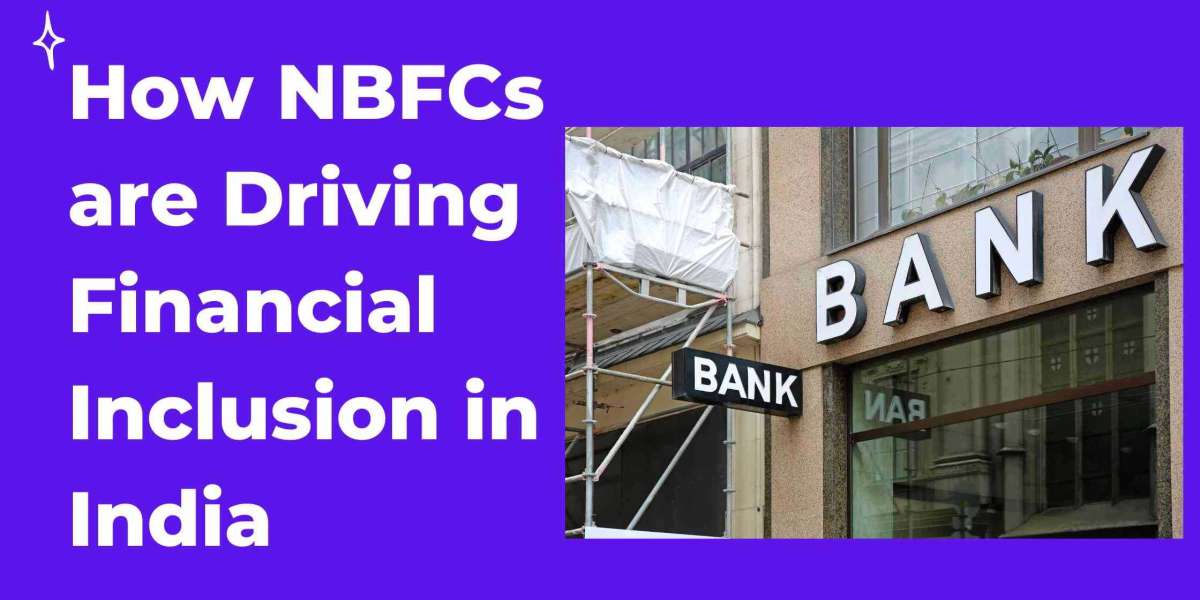Financial inclusion means making sure that everyone has access to affordable financial services, like banking, insurance, and credit. In India, this has been a challenge, especially for people living in rural areas or those with low incomes. Non-Banking Financial Companies (NBFCs) are playing a crucial role in bridging this gap and driving financial inclusion across the country. Let’s explore how NBFCs are making a difference and why their work is so important.
What Are NBFCs?
Before diving into their role in financial inclusion, it’s helpful to understand what NBFCs are. Unlike traditional banks, NBFCs are financial institutions that provide various financial services but do not have a banking license. They offer services like loans, asset management, and insurance, but they cannot accept deposits from the public.
NBFCs are regulated by the Reserve Bank of India (RBI), which sets guidelines to ensure they operate safely and soundly. Despite not being banks, NBFCs have become essential players in the financial sector, particularly in reaching people and businesses that banks might overlook.
Expanding Reach to Rural Areas
One of the main ways NBFCs are driving financial inclusion is by expanding their reach to rural and semi-urban areas. Many people in these regions have limited access to traditional banking services. Banks often focus on urban centers, leaving a significant gap in rural areas where people might need financial services just as much.
NBFCs are stepping in to fill this gap by setting up branches in smaller towns and villages. They use local knowledge to tailor their products to the needs of rural communities. For example, they offer microloans to farmers, helping them buy seeds or equipment. This kind of targeted support makes a big difference in areas where traditional banks may not operate.
Providing Accessible Credit
Access to credit is crucial for financial stability and growth, but many people in India struggle to get loans from traditional banks. Banks often have strict lending criteria, making it difficult for individuals with low incomes or poor credit histories to qualify. NBFCs, on the other hand, offer more flexible credit options.
NBFCs use alternative data to assess creditworthiness, such as utility bill payments or mobile phone usage. This allows them to provide loans to people who might not have a traditional credit history but still have the means to repay. By offering small personal loans, vehicle loans, and business loans, NBFCs help individuals and small businesses access the credit they need to grow and thrive.
Innovative Financial Products
NBFCs are known for their innovation in financial products and services. They often introduce new types of products that address specific needs of underserved populations. For instance, some NBFCs offer insurance products designed for low-income families, providing them with protection against unforeseen events like illness or accidents.
Another example is the development of digital financial products. Many NBFCs have launched mobile apps that allow people to manage their finances, apply for loans, and make payments using their smartphones. This is especially important in rural areas where physical bank branches might be scarce. Digital solutions help make financial services more accessible and convenient for everyone.
Supporting Small Businesses
Small businesses are the backbone of the Indian economy, but they often face challenges in accessing financial support. Traditional banks might be reluctant to lend to small enterprises due to perceived risks. NBFCs play a vital role in supporting these businesses by providing them with the necessary funding.
NBFCs offer tailored financial solutions such as working capital loans, equipment financing, and business expansion loans. They understand the unique needs of small businesses and provide customized products that help them manage their cash flow, purchase equipment, and expand their operations. This support helps small businesses grow, create jobs, and contribute to the local economy.
Promoting Financial Literacy
Financial literacy is essential for making informed decisions about money. NBFCs are not only providing financial services but also working to improve financial literacy among their customers. Many NBFCs conduct educational programs and workshops to help people understand how to manage their finances effectively.
These programs cover topics like budgeting, saving, and investing. By increasing financial literacy, NBFCs empower individuals to make better financial choices and take advantage of the services available to them. This education is crucial for ensuring that people use financial products wisely and avoid falling into debt.
Collaboration with Government Initiatives
NBFCs often collaborate with government initiatives aimed at promoting financial inclusion. For example, they might work with programs like the Pradhan Mantri Jan Dhan Yojana (PMJDY), which aims to provide banking services to every household in India. By partnering with such initiatives, NBFCs help extend the reach of these programs and ensure that more people benefit from them.
NBFCs also participate in various government schemes that provide subsidies or support to low-income families. This collaboration helps amplify the impact of government programs and ensures that financial services reach those who need them the most.
Regulatory Compliance and Challenges
As NBFCs expand their services and reach more customers, they must adhere to a range of regulatory requirements. For NBFCs registered with the RBI in India, maintaining compliance is crucial. This involves following a comprehensive annual NBFC compliance checklist, which includes regular audits, reporting financial performance, and adhering to RBI guidelines.
NBFCs must also be prepared for situations involving regulatory scrutiny, such as an RBI NBFC takeover. The procedure of RBI NBFC takeover checklist outlines the steps involved in such situations, ensuring that the process is transparent and that the NBFC continues to operate smoothly during transitions.
Additionally, NBFCs must perform various types of due diligence to manage risks effectively. This includes understanding the process and types of due diligence services, such as financial due diligence, operational due diligence, legal due diligence, and market due diligence. Each type of due diligence helps NBFCs assess the viability and risks associated with their operations, investments, and partnerships.
Future Outlook
While NBFCs are making significant strides in driving financial inclusion, they also face challenges. For example, they must navigate regulatory requirements and manage credit risk carefully. Additionally, as they expand into new areas, they need to ensure that they maintain high standards of service and support.
Looking ahead, the role of NBFCs in financial inclusion is likely to grow even more. As technology continues to advance, NBFCs will have new opportunities to reach underserved populations and offer innovative financial solutions. Continued collaboration with government initiatives and a focus on improving financial literacy will also play a crucial role in their success.
Conclusion
NBFCs are making a substantial impact on financial inclusion in India by reaching underserved areas, providing accessible credit, and offering innovative financial products. Their efforts help bridge the gap between traditional banking services and the needs of individuals and businesses in rural and low-income communities.
As NBFCs continue to evolve and adapt to changing circumstances, they will remain a key player in ensuring that everyone has access to the financial services they need. Their work not only supports economic growth but also empowers individuals to achieve financial stability and improve their quality of life.







